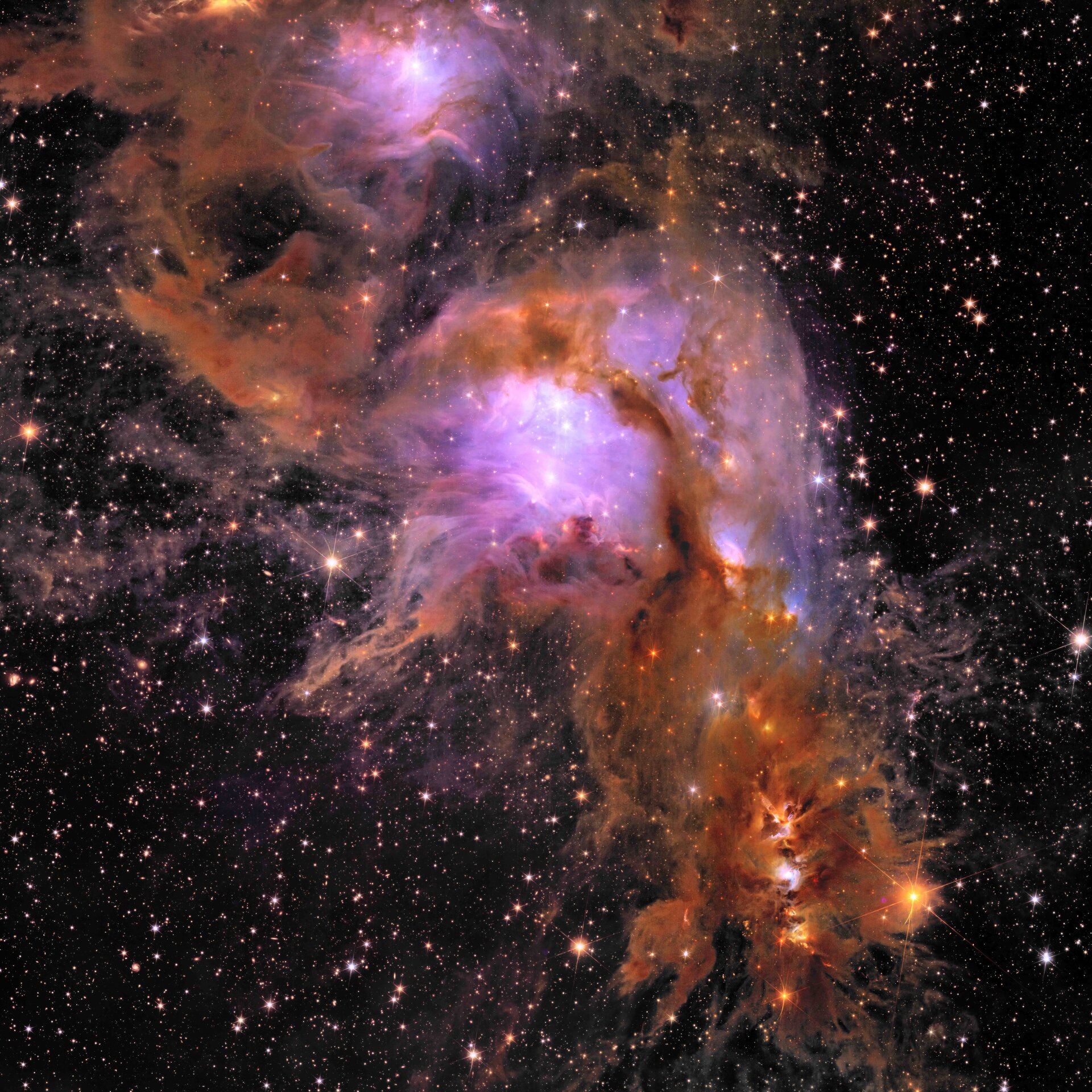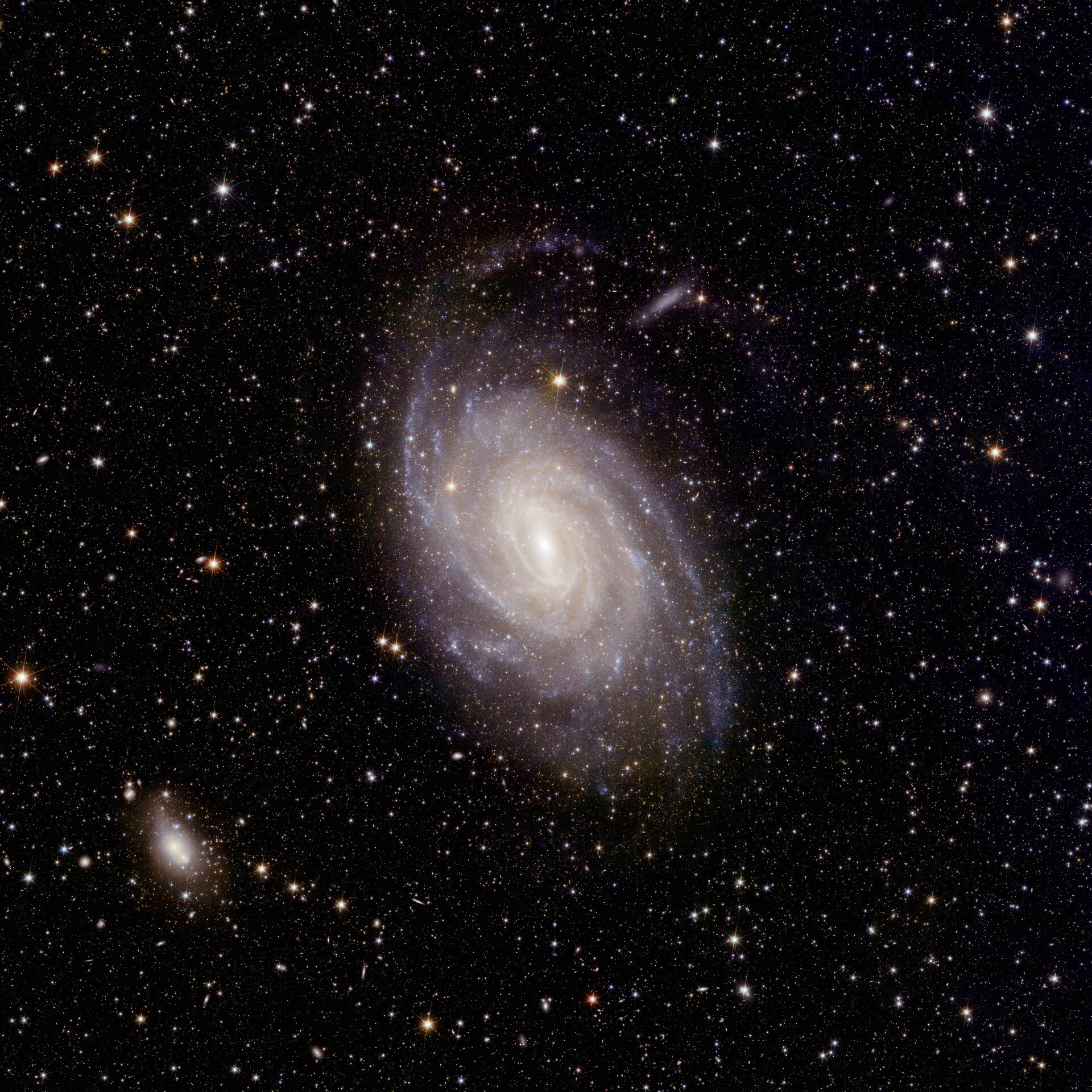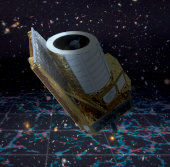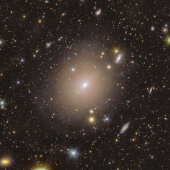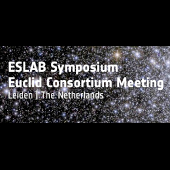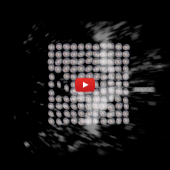Home - Euclid
Euclid: Exploring the dark universe
Euclid is a space survey mission dedicated to investigate the origin of the accelerating expansion of the Universe and the nature of dark energy, dark matter and gravity. Euclid will map the geometry of the Universe, and reconstruct the evolution of large scale sctructures over the last 10 billion years. Euclid was approved in 2012 as the second Medium Class mission (M2) in the ESA Cosmic Vision Programme. Euclid was launched on 1 July 2023 with a SpaceX Falcon 9 from Cape Canaveral.
The mission is optimised to measure shapes of galaxies, which are distorted by gravitational deflection of light due to dark matter concentrations, and to measure galaxy clustering, that is the non-random distribution of galaxies in the Universe resulting from the action of gravity. Euclid demands very high precision measurements and the ability to survey the sky at visible and near-infrared (NIR) wavelengths. Such requirements cannot be met from the ground, and calls for a wide-field Visible/NIR space mission. For more information see our SciTech site, and the "red book".
Latest News
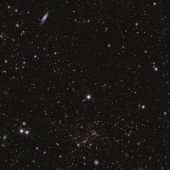
Euclid opens data treasure trove, offers glimpse of deep fields
On 19 March 2025, the European Space Agency's Euclid mission released its first batch of survey data, including a preview of its deep fields. Here, hundreds of thousands of galaxies in different shapes and sizes take centre stage and show a glimpse of their large-scale organisation in the cosmic web.
Further details on ESA's Science & Exploration portal.
Access the related video here
A press briefing recording can be found here

Zoom into the first page of ESA Euclid’s great cosmic atlas
On 15 October 2024, ESA's Euclid space mission reveals the first piece of its great map of the Universe, showing millions of stars and galaxies.
This first chunk of the map, which is a huge mosaic of 208 gigapixels, contains 260 observations made between 25 March and 8 April 2024. In just two weeks, Euclid covered 132 square degrees of the Southern Sky in pristine detail, more than 500 times the area of the full Moon.
Further details on ESA's Science & Exploration portal.
Access the video








































 Sign in
Sign in
 Science & Technology
Science & Technology

